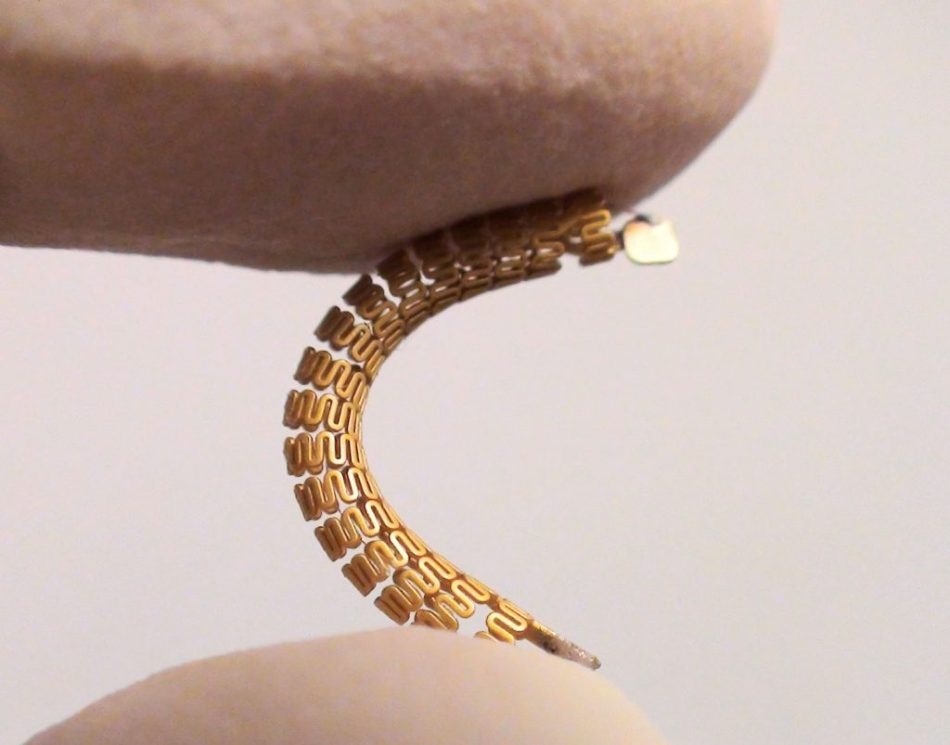Jun 21 2018
For every three patients who have been implanted with a stent to keep clogged arteries open and prevent a heart attack, at least one suffers restenosis - the renewed narrowing of the artery because of scarring or plaque buildup - which can result in more complications.
 The device uses medical-grade stainless steel and looks similar to most commercial stents. (Image credit: The University of British Columbia)
The device uses medical-grade stainless steel and looks similar to most commercial stents. (Image credit: The University of British Columbia)
Currently, a team led by electrical and computer engineering professor Kenichi Takahata from The University of British Columbia has created a type of “smart stent” that monitors even minor variations in the flow of blood via the artery, detecting the narrowing in its first stages and making early diagnosis and treatment possible.
We modified a stent to function as a miniature antenna and added a special micro-sensor that we developed to continuously track blood flow. The data can then be sent wirelessly to an external reader, providing constantly updated information on the artery’s condition.
Kenichi Takahata
The device is built with medical-grade stainless steel and resembles most commercial stents. Scientists state that this is the first angioplasty-ready smart stent—it can be implanted using existing medical procedures without alterations.
Research collaborator Dr. York Hsiang, a UBC professor of surgery and a vascular surgeon at Vancouver General Hospital, reinforced that monitoring for restenosis is crucial in handling heart disease.
“X-rays such as CT or diagnostic angiograms, which are the standard tools for diagnosis, can be impractical or inconvenient for the patient,” said Hsiang. “Putting a smart stent in place of a standard one can enable physicians to monitor their patient’s health more easily and offer treatment, if needed, in a timely manner.”
The device prototype has been successfully tested in the lab and in a swine model. Takahata who has patents for the technology, says his team is planning to form industry partnerships to further enhance the device, perform clinical trials, and ultimately commercialize it.
The study is reported in the May issue of the Advanced Science and featured on its front cover. Engineering researcher Xing Chen, currently a research associate at the Johns Hopkins School of Medicine, and Babak Assadsangabi, a postdoctoral fellow at UBC’s faculty of applied science, also contributed to the research.